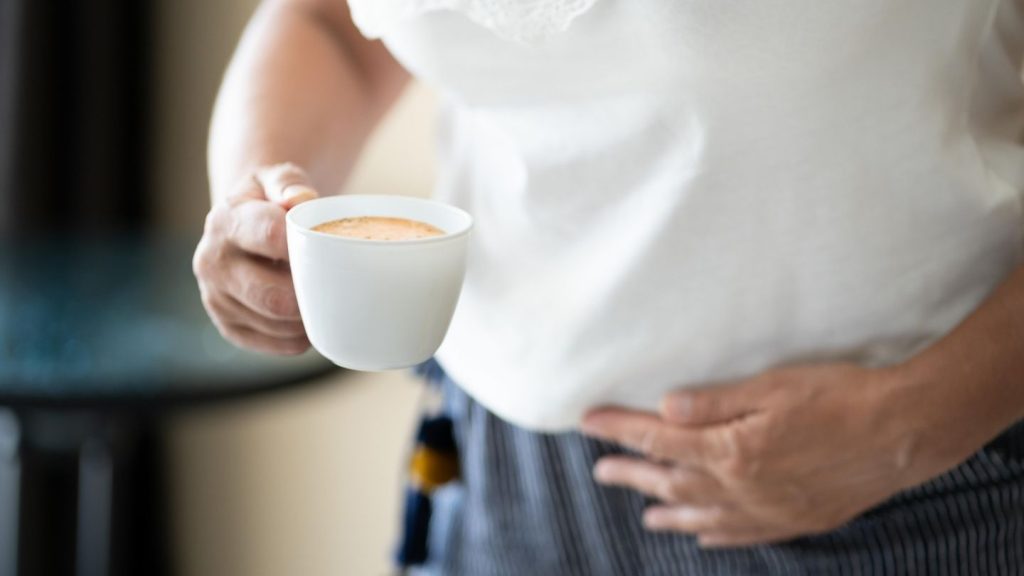
Why No Caffeine After Bariatric Surgery?
Wondering why there is no caffeine after bariatric surgery? Caffeine can interfere with your recovery by causing dehydration and digestive issues. This blog will explain these risks and how you can manage your caffeine cravings safely.
Key Takeaways
- Avoiding caffeine post-bariatric surgery is crucial to prevent dehydration and support healing, as caffeine can act as a diuretic.
- Caffeine can lead to gastrointestinal discomfort and hinder nutrient absorption, making it essential for patients to manage their intake wisely.
- Decaffeinated coffee is a safer alternative for bariatric patients, allowing them to enjoy the taste without the harmful effects of caffeine.
Understanding Bariatric Surgery and Recovery
Bariatric surgery serves as a significant intervention for weight reduction, presenting a fresh start to individuals grappling with severe overweight. It includes procedures like Laparoscopic Sleeve Gastrectomy, Gastric Bypass, and LAP-BAND Adjustment that are tailored to induce substantial weight loss by modifying the digestive tract. The real transformation begins post-operation during the recovery phase.
After undergoing bariatric surgery, it is crucial for patients to monitor their nutritional intake meticulously. Following the procedure, the dietary regimen becomes quite restrictive, with an emphasis on liquids or pureed foods, which is vital for appropriate healing and helps prevent complications while optimizing the outcome of the operation.
Hydration emerges as one of the principal concerns during recuperation, yet it must be balanced against avoiding specific drinks. Drinking caffeinated beverages, such as coffee, can pose issues due to their potential diuretic effect, leading to dehydration risk. Thus, careful selection of dietary habits supports bariatric patients in attaining successful long-term results from their surgical journey.
The Impact of Caffeine on Bariatric Patients

Bariatric surgery recipients should be cognizant of the potential complications that arise from drinking caffeine-containing beverages. Caffeine can adversely affect vital aspects of post-operative recovery by impairing hydration levels, disrupting gastrointestinal well-being, and hindering the absorption of important nutrients.
Avoidance of caffeine for those who have undergone weight loss surgery extends beyond merely foregoing their habitual morning cup of coffee. It is about providing an optimal healing environment for their bodies to recuperate and prosper effectively. The consumption of drinks containing caffeine may intensify dehydration—a common issue following such surgical procedures—and increase gastrointestinal distress.
By understanding these effects, individuals who have had bariatric surgery are better equipped to make knowledgeable choices regarding their caffeine consumption. These considerations include heightened risks associated with dehydration, discomfort in the digestive system, as well as challenges related to gut motility and the assimilation of essential nutrients into the body’s system.
Dehydration Risks from Caffeinated Beverages
Following bariatric surgery, there is a heightened concern regarding the consumption of caffeine drinks due to their diuretic properties. Caffeine prompts an increase in urine production, causing both water and salt to be expelled at higher rates from the body. This can exacerbate dehydration issues in individuals who are already susceptible following surgical procedures.
It’s vital for those recovering from bariatric surgery to maintain proper hydration levels as it aids in healing and ensures that bodily functions operate smoothly. An excessive intake of caffeine could undermine these efforts by stripping away essential fluids, thereby stalling recuperation and increasing potential health risks associated with dehydration. Consuming too much caffeine can lead to digestive issues and negatively affect hydration, which is critical for recovery.
To ensure optimal hydration during recovery, patients who have undergone bariatric procedures should steer clear of beverages containing caffeine. By choosing non-caffeinated options such as water instead, they substantially enhance their chances for a smoother rehabilitation process without compromising on their need to stay hydrated.
Acid Reflux and Digestive System Discomfort
Caffeine can negatively impact the digestive system, which is a crucial consideration for individuals recuperating from bariatric surgery. The acidic properties of coffee may increase the likelihood of acid reflux and additional gastrointestinal issues. Heightened levels of stomach acid might lead to reflux, thereby hindering the recovery process and leading to pain.
Post-gastric sleeve surgery, the stomach’s lining remains highly sensitive. The acidity found in ordinary coffee has the potential to aggravate this lining, exacerbating conditions such as GERD (gastroesophageal reflux disease) while provoking substantial discomfort. It’s advisable that bariatric patients exercise caution regarding their caffeine consumption through coffee to circumvent these distressing and detrimental consequences.
Read more: Life After Weight Loss Surgery: Insights from the Gastrointestinal Division
Gut Motility and Nutrient Absorption
Beyond inducing dehydration and prompting acid reflux, caffeine also disrupts gut motility and the absorption of essential nutrients. It causes food to pass through the digestive system more rapidly, which may appear harmless but can actually impede the proper uptake of critical nutrients necessary for recuperation after surgery.
For bariatric patients, achieving protein targets and securing adequate nutrient consumption is imperative. The faster pace at which food travels through their systems due to caffeine’s effect on gut motility may interfere with this process, inhibiting the assimilation of indispensable vitamins and minerals. Such deficiencies could obstruct recovery and impair overall well-being.
Caffeine’s ability to suppress appetite poses a challenge in ensuring these patients ingest enough proteins and other vital nutrients for healing purposes. By avoiding caffeine, one allows one’s body ample opportunity to digest foods thoroughly and absorb needed nutrients, effectively facilitating a smoother path toward recovery.
Read more: The Importance of Protein Intake After Gastric Sleeve Surgery
Nutrition and Health Considerations
After bariatric surgery, prioritizing nutrition and health becomes paramount to ensure a smooth recovery and successful weight loss. Caffeinated beverages, such as coffee, can interfere with the body’s ability to absorb essential nutrients, potentially leading to health complications. This is particularly concerning for bariatric surgery patients, who need to maximize nutrient intake to support healing and overall well-being.
Caffeine can hinder the absorption of vital nutrients like calcium, iron, and vitamin D, which are crucial for maintaining bone health, energy levels, and immune function. Given the restrictive nature of the post-surgery diet, every nutrient counts, and any factor that impedes absorption can be detrimental.
To mitigate these risks, bariatric surgery patients should be mindful of their caffeine intake. Opting for alternative beverages that promote hydration and nutrient absorption is a wise choice. Decaffeinated coffee, herbal teas, and nutrient-rich smoothies are excellent options that provide flavor and satisfaction without compromising nutrient intake. By making these mindful choices, patients can support their recovery and long-term health goals.
When Can You Reintroduce Coffee After Surgery?

Following bariatric surgery, many patients are eager to know when they can drink coffee again. Surgeons often advise patients to abstain from caffeine-containing beverages, including coffee, for at least the first month following the procedure. This abstinence gives your body time to recover without being negatively impacted by caffeine’s diuretic effect and potential gastrointestinal irritation.
Approximately a month after surgery, you may start reintroducing caffeine drinks cautiously back into your diet. It’s advisable to start with a modest quantity—perhaps just one cup of coffee—and closely observe how your body reacts before increasing consumption gradually. By taking this careful approach, you can help reduce any negative reactions associated with caffeine intake during this initial period when drinking coffee is allowed in moderation.
It is important always to seek advice from your healthcare provider before making any changes in post-operative eating habits or beverage choices. They will provide recommendations tailored specifically towards your health profile and recovery progress regarding consuming caffeine-containing products such as coffee.
Decaffeinated Coffee: Is It a Safe Alternative?
For individuals longing for their usual cup of coffee, decaffeinated coffee serves as a suitable substitute. Decaf coffee is typically deemed safe for intake following bariatric surgery and can often be included during the phase involving clear liquids. It delivers the comfort and familiar flavor of regular coffee but without the dehydration that caffeine can cause.
It’s important to reintroduce decaffeinated coffee into your diet slowly to avoid irritation to your stomach’s delicate lining after surgery. Consuming this type of coffee in moderation is crucial because drinking large amounts may lead to gastrointestinal discomfort.
Incorporating moderate amounts of decaf coffee into one’s diet post-surgery has its advantages due to its antioxidant properties while eliminating concerns over caffeine-related side effects. This allows individuals who have undergone bariatric surgery to continue savoring their cherished beverage within the bounds set by dietary restrictions related to their procedure.
Better Beverage Choices for Bariatric Patients
Selecting the right beverages and managing coffee intake post-surgery is crucial for a smooth recovery. Bariatric patients are encouraged to choose healthier alternatives over caffeinated drinks. Water, herbal teas, and smoothies provide hydration and nutrition without caffeine’s risks.
Herbal teas like chamomile and peppermint are caffeine-free and offer soothing properties that aid digestion and relaxation. Smoothies packed with fruits and vegetables can be a nutritious and delicious way to meet daily vitamin and mineral needs.
Coconut water is another great option, offering natural electrolytes that help keep you hydrated, especially after physical activity. Focusing on these healthier beverages helps bariatric patients support their recovery and overall well-being.
Read more: Meal Planning and Cooking for Bariatric Patients
Staying Hydrated and Satisfied
Staying hydrated is a critical aspect of recovery after bariatric surgery and caffeinated drinks can exacerbate dehydration. Bariatric patients should focus on drinking plenty of water throughout the day to maintain optimal hydration levels. Adding slices of lemon, strawberry, or cucumber to water can enhance its flavor, making it more enjoyable to drink.
Natural smoothies made from fresh fruits and vegetables are another excellent alternative to caffeinated beverages. They not only provide hydration but also deliver essential vitamins and minerals that support overall health and recovery. Herbal teas, such as chamomile or peppermint, are caffeine-free and offer soothing properties that can aid digestion and relaxation.
By prioritizing hydration and incorporating nutrient-rich foods and beverages into their diet, bariatric surgery patients can support their overall health and weight loss goals. These healthier choices help ensure a smoother recovery and contribute to long-term well-being, making the journey to a healthier future more attainable.
Read more: Bariatric Surgery Recovery Tips
Tips for Managing Caffeine Cravings

Handling the urge for caffeine drinks can be a difficult task, yet with certain strategies, it is manageable. Easing down on caffeine consumption bit by bit lessens withdrawal symptoms and facilitates a smoother shift away from reliance. It’s advisable to moderately drink caffeine instead of stopping suddenly while steadily diminishing your intake over time.
Substitute beverages laden with caffeine for options such as herbal infusions, green tea (which has lower levels of caffeine), or fruit smoothies. These substitutes offer comparable satisfaction and habit without the adverse impacts linked to excessive caffeine intake. Keeping well-hydrated and adhering to a nutritious diet also help naturally curb those cravings for more caffeine.
Summary
Avoiding caffeine after bariatric surgery is essential to foster healing and recovery. This involves preventing dehydration, minimizing gastrointestinal discomfort, and ensuring the effective absorption of nutrients—all crucial benefits of steering clear of caffeine.
At Wellstar Comprehensive Bariatric Services, we are dedicated to guiding you every step of the way on your weight loss journey. From your first consultation to achieving lasting health success, our expert team provides personalized care and advice tailored to your unique needs. We offer customized bariatric surgery in East Cobb, Marietta, Austell, Smyrna, LaGrange, and other locations across Georgia, to help you find relief and embark on a path to a healthier future. Contact us today to begin your transformation.
